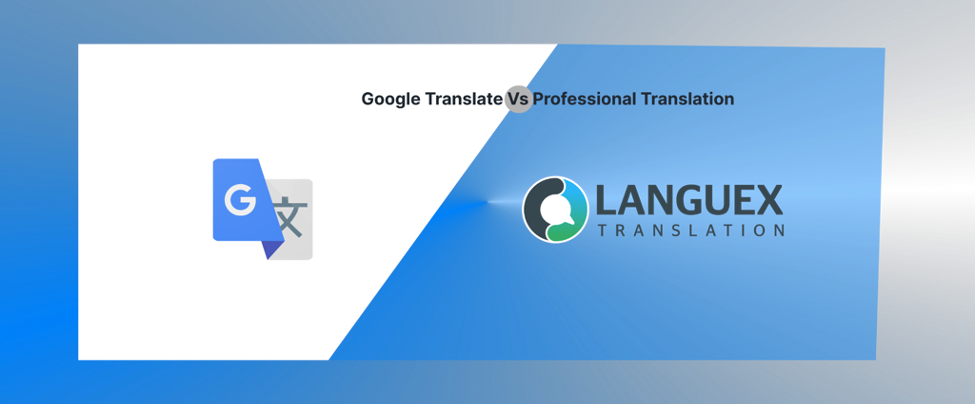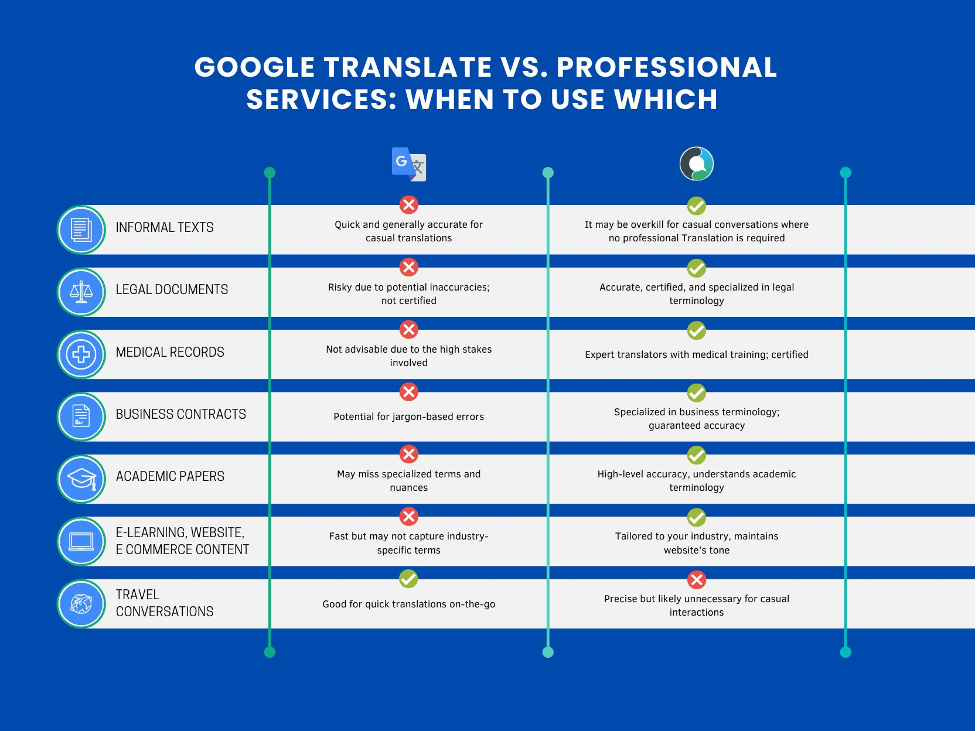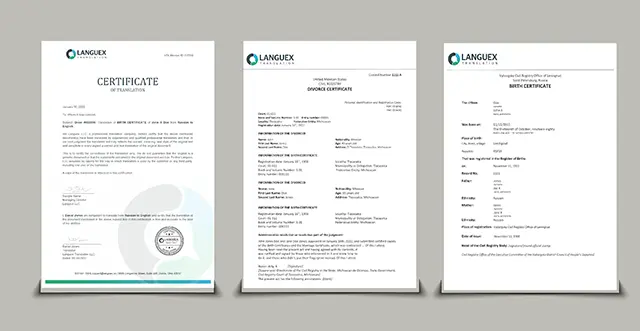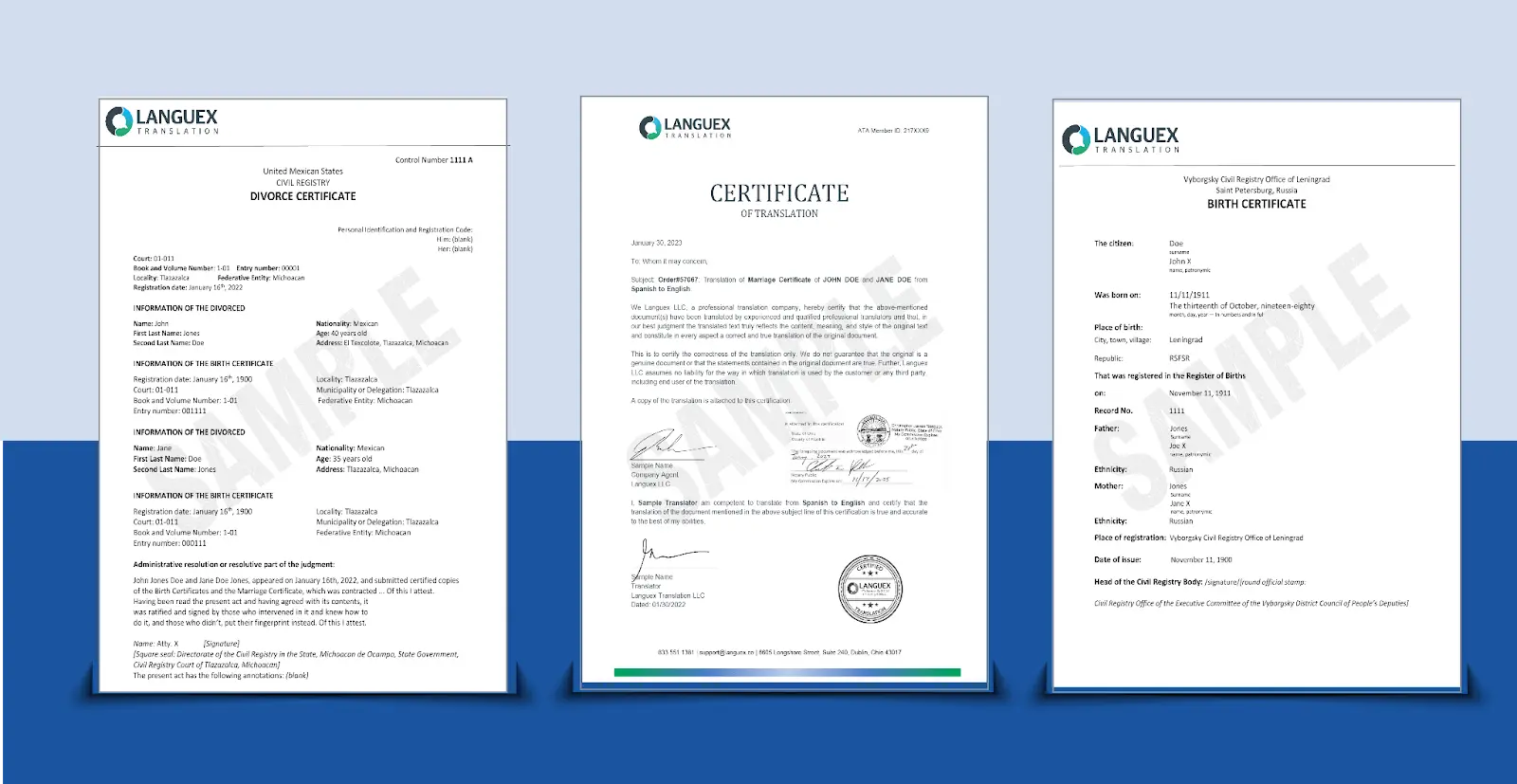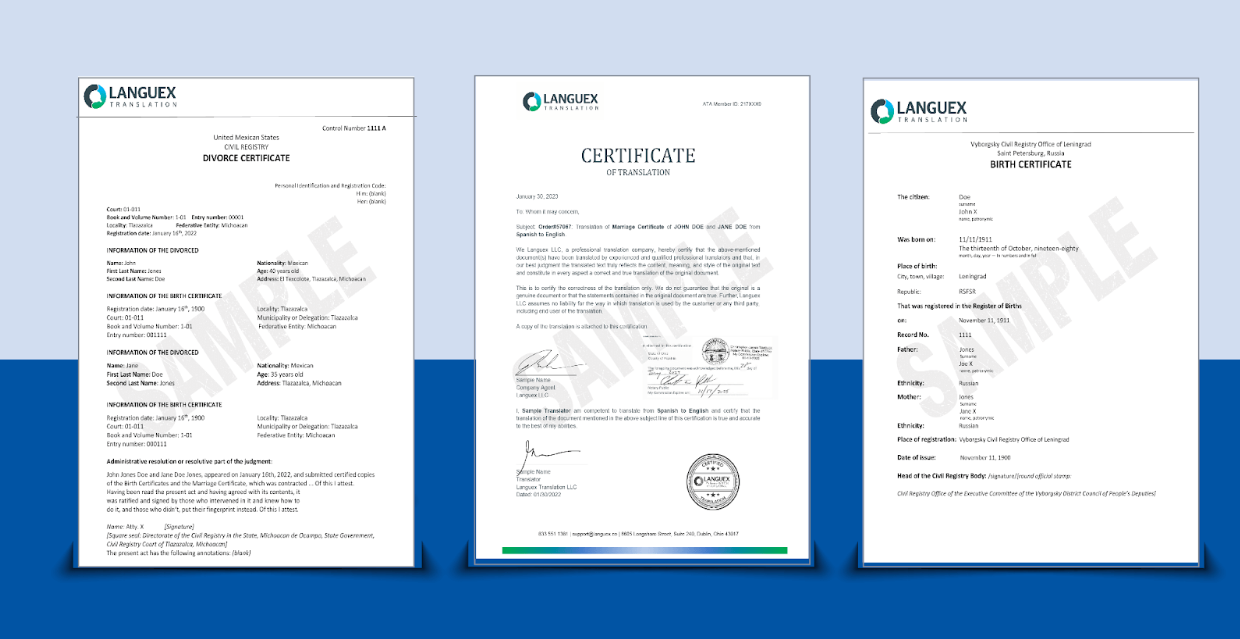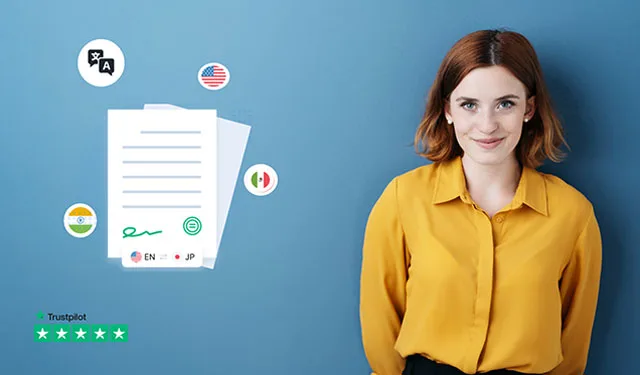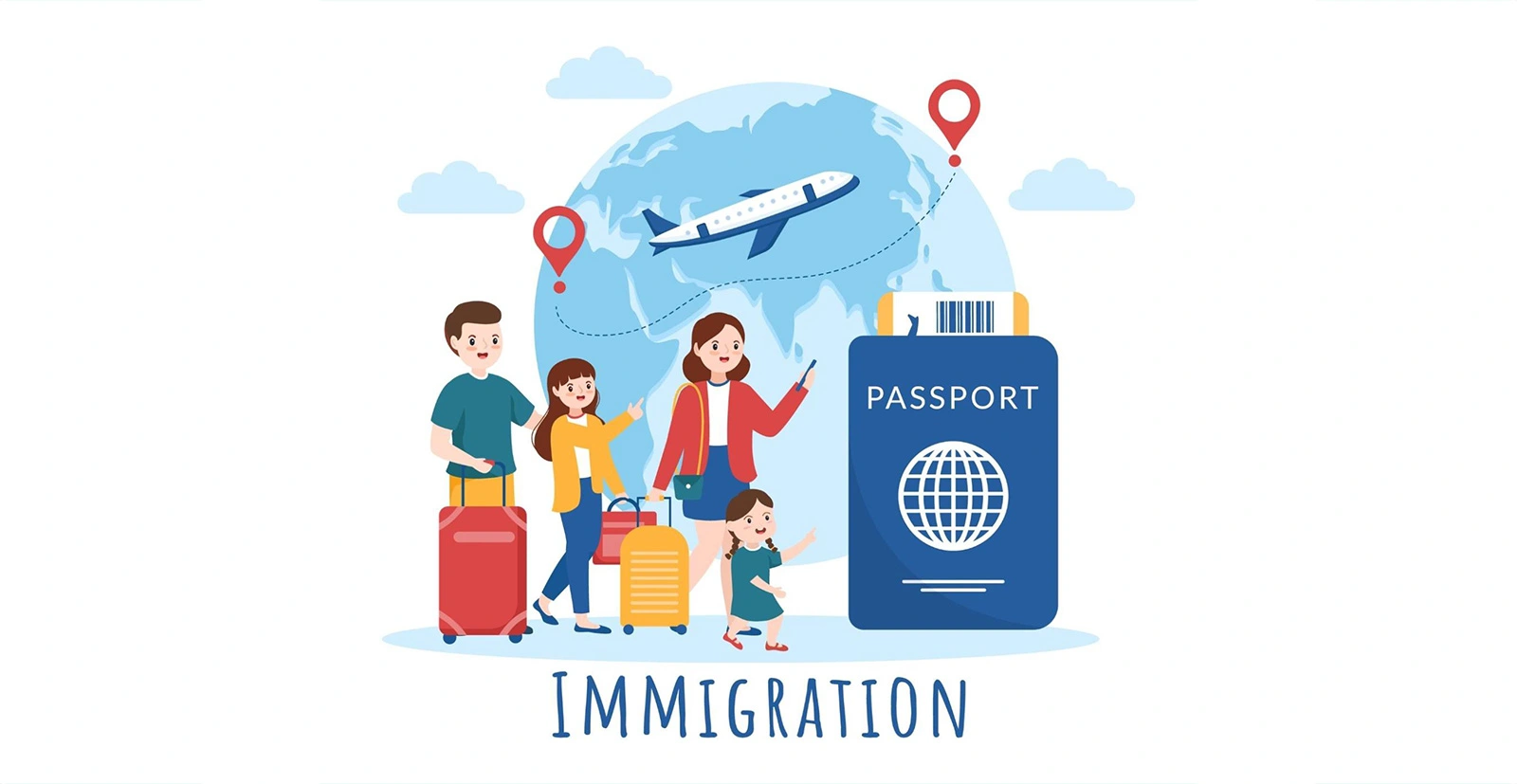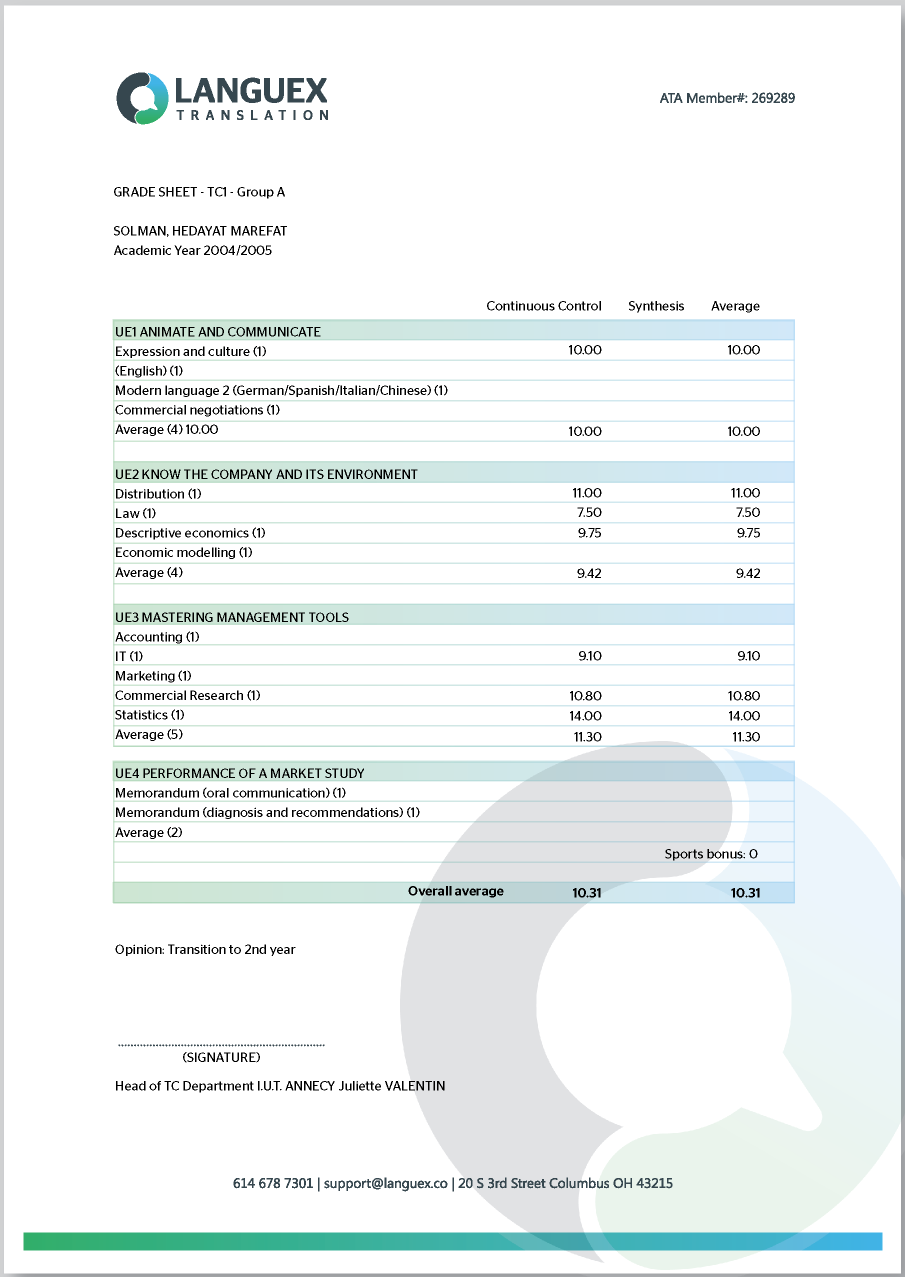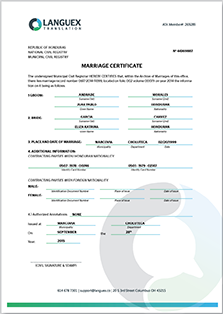Google Translate doesn’t cut it for documents or content that require professional translation, such as Legal, medical, and financial documents, or anything that requires high-accuracy translation – Leave those meaningful translations to professional human translators and avoid any risky errors.
Google Translate is super handy for essential translations with friends or reading websites. But is it good enough to handle anything you need to be translated? Probably not.
This blog post explains when Google Translate works well and when you’re better off with a professional human translator or translation company. Read on to learn about times Google Translate has you covered, situations where risks of errors are too high, and how to get affordable human translations.
Key Takeaways:
- Google Translate works okay for casual translations but risks mistakes with subtle or technical texts.
- Don’t use Google Translate for anything high-stakes like legal forms, medical info, contracts, or academic papers. Errors here are too risky.
- For certified translations, always choose human pros. Legally validating docs demands total accuracy that Google can lack.
- Consider factors like language pair, doc type, and needed precision when deciding between Google and experts.
- While tech is improving translation, human judgment still leads for conveying complex legal or medical content completely error-free.
Table of Contents:
- The Tech Behind Google Translate
- Tips for Optimizing Your Use of Google Translate
- When Google Translate Falls Short
- When Not to Use Google Translate
- Avoid Google Translate for Certified Translations
- Tips on Choosing Google Translate or Professional Translation
- How Technology is Changing the Translation Landscape
- Why Choose Professional Translation Services?
The Tech Behind Google Translate
Google Translate has used Google Neural Machine Translation (GNMT) technology. This allows the tool to consider the full context of a sentence when translating, making it more nuanced and often more accurate. This is a significant improvement over its previous system, Statistical Machine Translation. But consider that both systems are trained on vast datasets that usually include a larger volume of text for more commonly spoken languages. Therefore, the translations of these languages are more accurate than those that are less widely spoken.
Tips for Optimizing Your Use of Google Translate
Even if you opt for a professional service like Languex for essential tasks, Google Translate can still be a handy tool for informal settings. Here are some best practices when using it:
- Stick to Common Languages: Google Translate is more reliable when translating between widely spoken languages like English, Spanish, and Chinese. (See the table below to learn more.)
- Avoid Slang and Idioms: Machine translation struggles with cultural idioms and slang, so it’s best to use standard language.
- Review and Edit: Always double-check the translated text and edit where necessary, especially for important documents.
Maximize Accuracy with Double-Translation
When popular books get translated, like adapting an award-winning English novel into other languages, it takes serious word skills. Translators read super close, picking up on cultural details and artistry stuff. Then, they rewrite book passages in their new language, keeping the story real and powerful.
Interpretation Examples
To maximize the accuracy of Google Translate, it’s advisable to double-translate your text. This means you should first translate your text into the target language and then back to the original language. By doing this, you can catch any glaring errors or awkward phrasings. If the text that comes back to you is dramatically different or doesn’t make sense, that’s a red flag, indicating that you should seek professional translation for that content.
Contribute and Improve Using ‘Suggest an Edit’
Another practical tip is to use the ‘Suggest an Edit’ feature on Google Translate. If you’re bilingual or proficient in a second language, you can compare the translated text with the original and make necessary adjustments. You’re improving your translation and the Google Translate tool for everyone by suggesting an edit. It’s a win-win situation.
When Google Translate Falls Short
A 2021 study by UCLA Medical Center highlighted a significant caveat: Google Translate’s general accuracy is around 82.5% but ranges between 55% and 94%, depending on the language.
When Not to Use Google Translate
Brand presentations, academic papers, patent applications, and financial reports are all instances when you should exercise caution with Google Translate. However, regarding medical translations, legal and immigration documents, and business agreements, relying on Google Translate should not be considered.
Legal and Immigration Documents
If you’re dealing with anything legal, avoid Google Translate. Professional services offer specialized expertise, which Google Translate needs to improve. A single error in translation can lead to disastrous outcomes, such as visa rejection or even legal complications.
Medical Translations
Medical documents require extreme precision. Even a tiny error in medication dosage or medical advice can be life-threatening. That’s where professional translation services can make a crucial difference.
Business Agreements
When drafting or reading business agreements and contracts, every word counts. Google Translate often needs to catch up on industry-specific jargon and capture the subtleties in contractual language.
Avoid Google Translate for Certified Translations
When you need a certified translation, avoid Google Translate. Certified translations require total accuracy; per the American Translator Association, a certified translation is a word-for-word translation that maintains the original document’s integrity and accuracy. An accredited translator signs a certificate of accuracy featuring their signature, stamp, and contact information, among other qualifications.
Google Translate often makes subtle translation mistakes that humans would not. Its machine system needs to have the nuanced skills of professional translators. For sensitive or official texts, those errors carry too much risk.
If you’re dealing with any Document that requires certified translation, avoid Google Translate. Professional translation services offer specialized expertise, which Google Translate needs to improve. Compliance with certified translation can lead to disastrous outcomes, such as USCIS Application rejection or even legal complications.
Tips on Choosing Google Translate or Professional Translation
Deciding between Google Translate and a professional translation service like Languex is a dilemma. Both have their strengths and weaknesses, and the best choice often depends on various factors, such as the type of document you’re translating, the languages involved, and the level of accuracy required.
To simplify this decision-making process, we’ve compiled a handy table that shows where Google Translate shines and falls short. We’ve also included the advantages of using Languex for specific scenarios. Whether you’re looking to translate a casual message or a critical legal document, this table can be your go-to guide for making an informed choice.
How Technology is Changing the Translation Landscape
The future is bright for translation technology. Neural machine translation, AI, and blockchain are making strides in the field. However, human expertise remains irreplaceable for now, and services like Languex stand at the intersection of technology and human skill.
Why Choose Professional Translation Services?
When high-stakes legal documents demand flawless multilingual conversions, the risks of misinterpreting nuances quickly become intimidating. Yet peace of mind is possible with accredited translation experts.
Languex erases fears around international legal papers through certified translators honed in legal and linguistic intricacies across jurisdictions. Their human insights and robust quality controls assure no distortion – just perfectly culturally adapted communications.
Google Translate can be incredibly useful, but it has its limitations. You can’t beat the personalized touch offered by a professional translation service like Languex. Get a quote or Order Online for projects requiring specialized knowledge or high accuracy.
